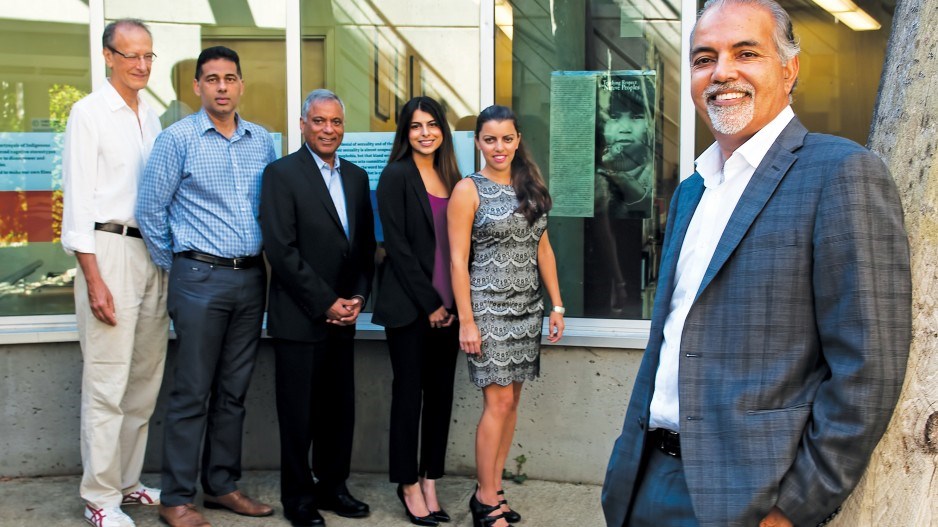Indo-Canadian business owners in Surrey and Vancouver hope to increase First Nations enrolment at the University of British Columbia (UBC) through a new grant.
According to a 2015 UBC report, First Nations students make up 2.4% of domestic enrolment. In the 2015 school year, there were 985 First Nations students across all fields of study at UBC, which included a decrease in baccalaureate degree students, from 558 in 2014 to 543.
Along with a number of other Indo-Canadian business owners, Barj Dhahan, owner of the Surrey-based Sandhurst Group, has spearheaded a $400,000 fund in partnership with the university’s development office. The fund is called the UBC Centennial Scholars Major Entrance Awards for Aboriginal Students.
Dhahan said the initiative’s roots lie in his belief that it’s important that all groups take ownership when it comes to the history of colonization and aboriginal people. He noted many Punjabis came over to North America with English settlers in the early 1900s while the Indian subcontinent was still a British colony.
“Along with [Punjabi immigrants’] interactions with European Canadians, they also had interactions with the First Nations community,” added Dhahan. “And that interaction was both good and bad, positive and negative.”
Dhahan, who graduated from UBC in 1983, noted the fund to establish 20 scholarships was spurred by a specific call to action item in the 2015 report by the Truth and Reconciliation Commission of Canada. Five students will be selected each year for four years, for a total of 20 recipients, who will receive $5,000 annually or $20,000 over four years.
“While immigrants like my family, as like many Punjabis, have come to this land and have been able to access higher education, many of the First Nations people have not been able to do that for a whole variety of reasons,” he said. “So those of us who have immigrated here have benefited from the material wealth of the land, and then the wealth of the education system that is created here.”
He hopes the fund helps raise awareness among people within Canada’s immigrant communities who might not know a lot about the history of First Nations in North America.
“What troubles me are the stereotypes that all Canadians, including immigrants, Indo-Canadians of a Punjabi background, have towards First Nations. There are a lot of myths out there, negative stereotypes. One of the myths is that First Nations get everything for free in Canada, they get free education, free health, access to fishing and hunting without having to pay anything.”
Dhahan pointed out that only status First Nations are eligible to receive money for post-secondary education through Indigenous and Northern Affairs funding. Prospective students also have to apply to their band to receive approval every year, which can be limited, subject to caps, multiple conditions and may only cover tuition and books.
On September 6 the provincial government announced 11 post-secondary institutions will receive approximately $3.6 million in 2016-17 to support aboriginal service plans. However, UBC was not one of them. In its announcement, the government noted the aboriginal population in B.C. is growing at more than triple the rate of the non-aboriginal population, with 46% under the age of 25.
Associate professor Linc Kesler, director of UBC’s First Nations House of Learning and the senior advisor to the president on aboriginal affairs, said there has been a concerted effort over the last few years to get more First Nations students into a wide variety of programs.
“For years we were not seeing indigenous students in the business curriculum or in engineering, or in resource sector studies,” said Kesler. “But they’re there now, and the expertise they are developing and the expertise they will be able to bring to their communities from their experience can inform the way we think about all those areas.”
Kristen Harvey, UBC’s associate director of strategic aboriginal enrolment initiatives for Enrolment Services, called the fund a good example of “community building” and said that this year eight aboriginal students received grant support to study, compared with two students last year. She noted $150,000 in undergraduate entrance scholarships and awards are dedicated to aboriginal students, and $500,000 in graduate fellowships were provided to aboriginal graduate students for the 2015-16 school year.




